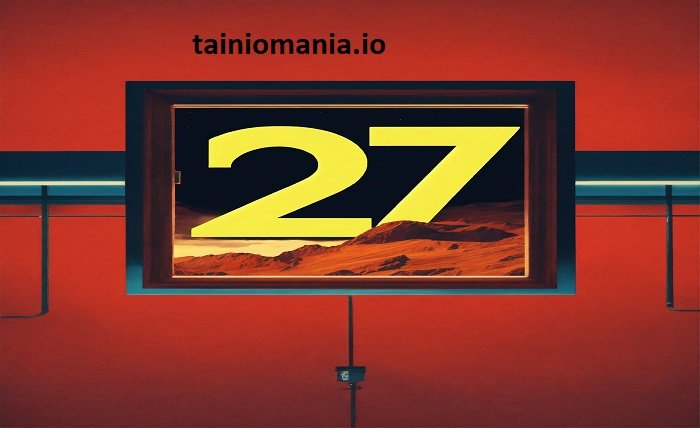1. The Significance of Article 370
Article 370 of the Indian Constitution granted special autonomy to Jammu and Kashmir, allowing the state to have its own constitution and decision-making powers in all matters except defense, communications, finance, and foreign affairs. The Article 370 movie centers around this pivotal constitutional provision, exploring its implications and the debates it sparked over the years.
2. Historical Context of Article 370
The Article 370 movie begins by setting the historical context, tracing the origins of Article 370 to the time of India’s independence and the subsequent accession of Jammu and Kashmir to India. The film provides a detailed account of the negotiations and conditions that led to the inclusion of Article 370 in the Constitution, highlighting the unique circumstances of Jammu and Kashmir.
3. Political Ramifications
One of the key themes of the Article 370 movie is the political ramifications of the provision. The film delves into how Article 370 influenced the political landscape of Jammu and Kashmir, shaping its relationship with the Indian government. It examines the various political movements and leaders who advocated for and against the special status, offering a balanced perspective on the issue.
4. Social Impact on Jammu and Kashmir
The Article 370 movie also explores the social impact of the provision on the people of Jammu and Kashmir. It sheds light on how Article 370 affected the everyday lives of the residents, their identity, and their sense of belonging. Through personal stories and narratives, the film paints a vivid picture of the social dynamics in the region.
5. The Abrogation of Article 370
A significant portion of the Article 370 movie is dedicated to the events leading up to the abrogation of Article 370 in August 2019. The film meticulously documents the government’s decision to revoke the special status, the legislative procedures involved, and the immediate aftermath of the abrogation. This pivotal moment is portrayed with the intensity and drama it warrants, reflecting its historical importance.
6. Reactions and Controversies
The Article 370 movie does not shy away from the controversies and diverse reactions that followed the abrogation. It presents a balanced view by showcasing the perspectives of various stakeholders, including political leaders, activists, and the general populace. The film captures the nationwide debates and international responses, emphasizing the far-reaching impact of the decision.
7. Human Rights Concerns
Human rights concerns are a critical aspect addressed in the Article 370 movie. The film highlights the allegations of human rights violations in the region, particularly in the wake of the abrogation. It features interviews with affected individuals, human rights organizations, and legal experts, providing a comprehensive view of the humanitarian implications.
8. Economic Implications
The Article 370 movie also delves into the economic implications of the provision and its abrogation. It examines how the special status impacted the region’s economy, focusing on areas such as investment, development, and employment. The film assesses the economic promises made post-abrogation and the reality on the ground, offering insights into the region’s economic future.
9. Cinematic Representation
In terms of cinematic representation, the Article 370 movie is a masterpiece of storytelling and direction. The film’s narrative structure, character development, and cinematography work together to create a compelling and immersive experience. The use of real-life footage, dramatized reenactments, and powerful dialogues enhances the film’s authenticity and emotional impact.
10. Critical Reception
The Article 370 movie has received mixed reviews from critics and audiences. While some praise its bold approach and thorough research, others criticize it for potential biases or oversimplifications. This section of the blog post reviews the critical reception, summarizing key points from notable reviews and audience feedback to provide a holistic view of the movie’s impact.
Conclusion
The Article 370 movie is a significant cinematic endeavor that tackles one of the most contentious issues in contemporary Indian history. By exploring the historical, political, social, and economic dimensions of Article 370, the film offers a comprehensive and thought-provoking narrative. As audiences engage with this complex story, the Article 370 movie stands as a testament to the power of cinema to illuminate, challenge, and inspire.
FAQ
1. What is the main focus of the Article 370 movie?
The main focus of the Article 370 movie is to explore the historical, political, social, and economic dimensions of Article 370 of the Indian Constitution, which granted special autonomy to Jammu and Kashmir.
2. How does the Article 370 movie address the abrogation of Article 370?
The Article 370 movie dedicates a significant portion to the events leading up to the abrogation of Article 370 in August 2019, documenting the government’s decision, legislative procedures, and the immediate aftermath.
3. What are the key themes explored in the Article 370 movie?
Key themes explored in the Article 370 movie include the historical context of Article 370, political ramifications, social impact, human rights concerns, economic implications, and the controversies and reactions following its abrogation.
4. How has the Article 370 movie been received by critics and audiences?
The Article 370 movie has received mixed reviews, with some praising its bold approach and thorough research, while others criticize it for potential biases or oversimplifications. Overall, it has sparked significant debate and discussion.
5. What makes the Article 370 movie significant?
The Article 370 movie is significant because it tackles a highly contentious issue in contemporary Indian history, providing a comprehensive and thought-provoking narrative that illuminates the complexities surrounding Article 370 and its impact on Jammu and Kashmir.













